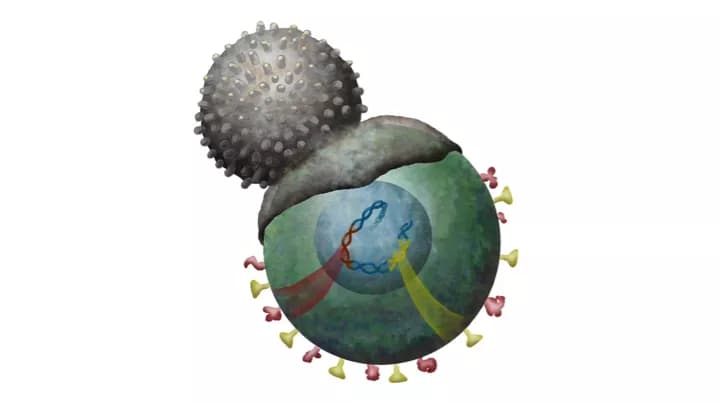Statins protect against cardiovascular disease in more ways than previously thought. In a study, researchers from Karolinska Institutet are able to show the immunological effects of statins, and present a new hypothesis on why satins are effective at preventing heart attacks. The study is published in The Journal of the American Heart Association.
Atherosclerosis can lead to a number of serious medical conditions, such as heart attack, stroke and intermittent claudication. These and other cardiovascular diseases are on the increase around the world, and are the leading causes of death in the west. Johan Frostegård, professor at KI's Institute of Environmental Medicine, has had a long-standing interest in atherosclerosis and the possible underlying causes of this chronic inflammation. Atherosclerosis is visible on the blood vessel walls as plaque consisting of accumulated dead cells and oxidised (rancid) LDL cholesterol (the so-called "bad" cholestero
l) and two types of immune cell, T cells and dendritic cells, which are the key players in this chronic inflammation.
Statins are a common class of drug often used to prevent cardiac arrest and other such conditions. Even though it has long been known that statins are anti-inflammatory, it is unclear whether the immune system is more specifically affected, the assumption having been that statins are so effective because they reduce levels of cholesterol in the blood.
"We can show how statins can protect against cardiovascular disease through a new, specific immunological mechanism, and I believe that this can explain much of their beneficial effect," says Johan Frostegård, professor of medicine at Karolinska Institutet's Institute of Environmental Medicine and consultant at Karolinska University Hospital's Emergency Clinic. "For the first time, we're able to show that an immunological treatment for atherosclerosis can actually work."
The researchers studied the interaction between the two most important immune cells in this context, T cells and dendritic cells. By looking at atherosclerotic plaque sourced direct from operations on human patients, they found that oxidised LDL-cholesterol activates inflammatory T cells from plaque via the dendritic cells. The statins block the T cells and stimulate the production of anti-inflammatory T cells (T regulatory cells). The dendritic cells are also affected in a way that renders them anti-inflammatory.
When the side-effects of statins are discussed, their possible carcinogenic properties are sometimes addressed. While large-scale metastudies have shown that there is a reduction in most kinds of tumour, in this study it was discovered that statins repress gene activators (microRNA), including a certain kind called let7c, which normally helps to inhibit tumour growth. In this study, let7c was involved in oxidized LDL-induced T cell activation.
"Statins severely repressed let7c," says Professor Frostegård. "If a patient has a tumour in which let7c plays an important part, the statin effect could be adverse. At the same time, statins reduce inflammation and that can lower the risk of cancer, and large metastudies show no general increase in cancer risk."
Materials provided by Karolinska Institutet. Note: Content may be edited for style and length.
Disclaimer: DoveMed is not responsible for the adapted accuracy of news releases posted to DoveMed by contributing universities and institutions.
Primary Resource:
Frostegård, J., Zhang, Y., Sun, J., Yan, K., & Liu, A. (2016). Oxidized Low‐Density Lipoprotein (OxLDL)–Treated Dendritic Cells Promote Activation of T Cells in Human Atherosclerotic Plaque and Blood, Which Is Repressed by Statins: microRNA let‐7c Is Integral to the Effect. Journal of the American Heart Association, 5(9), e003976.
Related Articles
Test Your Knowledge
Asked by users
Related Centers
Related Specialties
Related Physicians
Related Procedures
Related Resources
Join DoveHubs
and connect with fellow professionals


0 Comments
Please log in to post a comment.